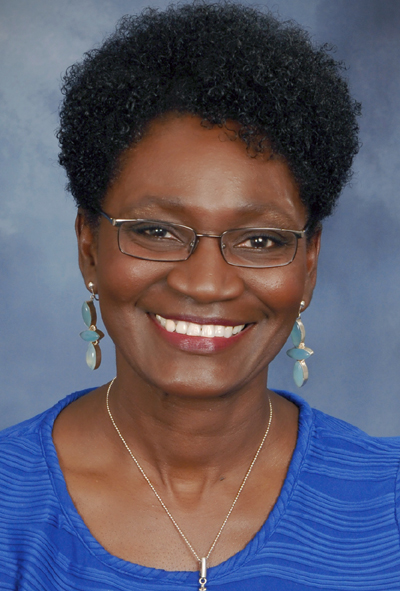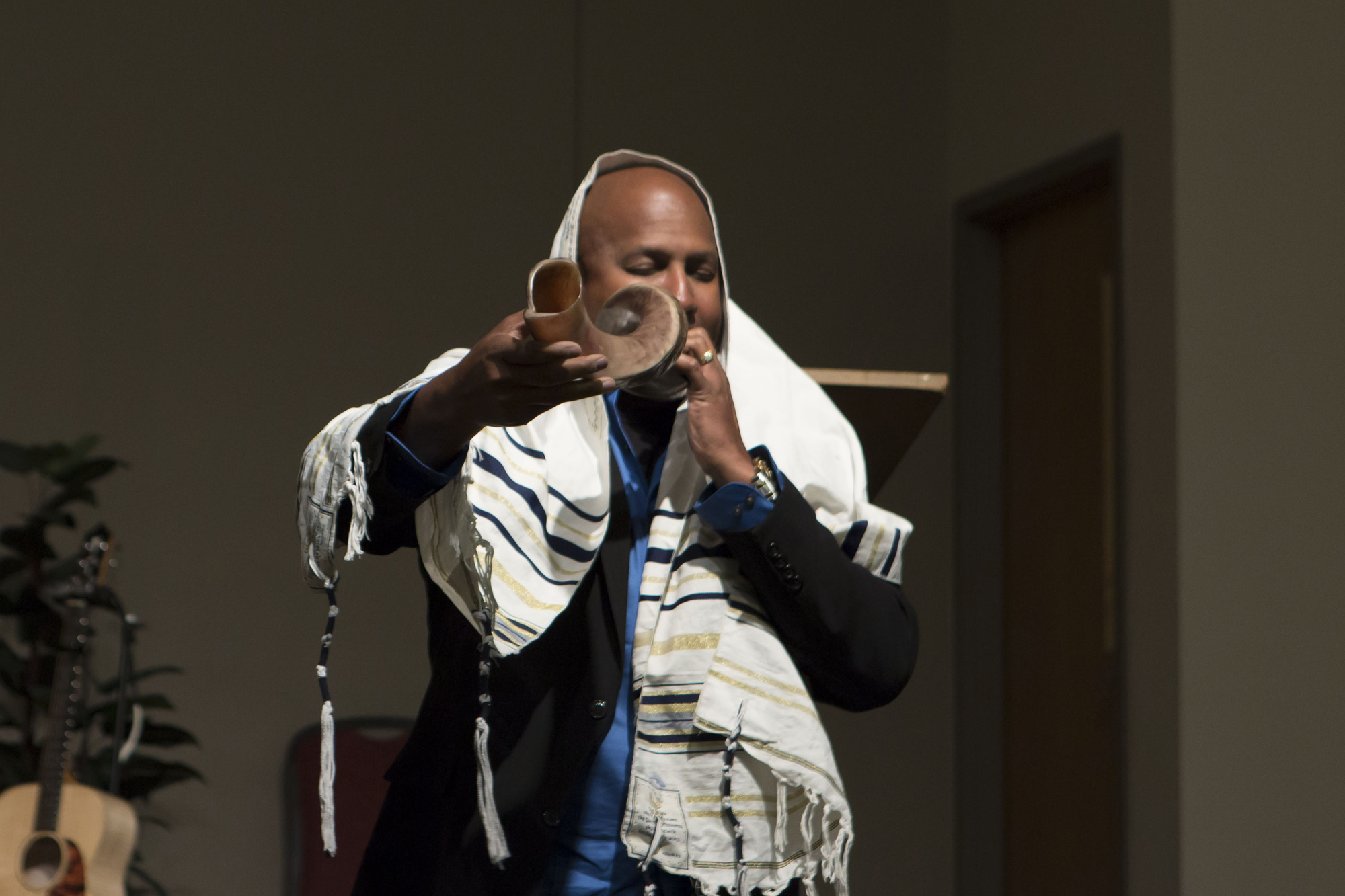
[SLIDESHOW=44776,44777] NASHVILLE (BP) — “Aren’t all Messianic congregations Jewish people who believe in Christ?” I asked myself as the 300 or so Christians gathered for the Nashville Passover.
NASHVILLE (BP) — “Aren’t all Messianic congregations Jewish people who believe in Christ?” I asked myself as the 300 or so Christians gathered for the Nashville Passover.
Partaking of a Seder had been one of my dreams since I first heard a “Jesus in the Passover” presentation as a lay minister in New Orleans some 15 years ago. I wanted to discover whether keeping the Passover might be considered a personal spiritual discipline beneficial to my walk with the Lord.
The Messianic believers seated at my table for the full-course April 10th event were anything but Jewish.
One, an African American gentleman, had first learned to keep the Sabbath on Saturdays as a Seventh-day Adventist. Another, an African American and very pregnant mother resplendent in an Afro-centric fabric head wrap, was taught to keep the Passover because one of her ancestors took hold of the practice when he first learned to read as an adult.
Both were members of Mercy Collective, a Nashville Messianic congregation where only about 10 percent of the 100 or so who gather for Saturday worship have any sort of Jewish background, according to administrative pastor John Diffenderfer.
He and his wife Melissa are not Jewish, and neither are pastor Nathein Perkins and his wife Shannon, but the four keep the Jewish Sabbath and the Passover in leading the four-year-old congregation which meets at Crievewood Baptist Church.
“My background primarily was kind of ‘Bapticostal’ for my childhood and other things,” Diffenderfer said. He “then came into the Messianic faith” later in his childhood and before his teens, he said, and has been “doing Passover and other biblical feasts since then.”
Diffenderfer planted Mercy Collective in response to God’s calling, the bivocational pastor said, and has seen a growing interest in the Passover among Christians of various faiths, although he has no numbers to back his perception.
He describes “a progression within the worldwide church of Christians embracing sort of a biblical, Hebraic, some people would call the Jewish customs, and the culture and the traditions that even Christ Himself practiced,” Diffenderfer said. “Twenty years ago … there were very few if any Christians celebrating Passover or doing anything of that sort. But now, they’re everywhere.”
Perhaps a fifth of those who attended the Seder were Jewish believers, blended in a sea of other believers of various ethnicities. About a fourth of them responded when asked whether they were attending a Seder for the first time.
Among guest pastors was Michael Cummings of Bethlehem Baptist Church, a Southern Baptist congregation he said averages 175 worshippers on Sundays in Nashville. Cummings focused on deliverance and the gift of eternal life when he presented a brief devotion at the event, one of four offered by various ministers.
“Why should Protestants who are not Messianic participate in a Seder?” I asked Cummings a couple of days later.
“To me, that’s kind of an oxymoron,” Cummings responded to my terminology. “To me, all believers are Messianic. Even though we are not from the tradition of a Messianic Jew, we are all focused on the Messiah.”
Cummings began taking Seder 10 years ago and describes the Nashville Passover, which he participated in for the first time, as his best experience in keeping the feast. While his Southern Baptist congregation does not observe other traditional Jewish festivals and feast days as does Mercy Collective, he encourages Christians to keep Passover.
“It’s important for us, in our everyday life. Any chance we get to focus on and remember what Jesus has done for us, then we should take that opportunity to do that,” Cummings told me. “And of course if more of us did that on a daily basis as Jesus told us to, to take up our cross daily, then I think our world would be a lot better place.”
For Cummings, the Passover expands on the Lord’s Supper and is a great benefit. “I think it’s important for us to understand those traditions, because the more we understand our roots and those traditions,” Cummings said, “I think the greater understanding we’ll have of who Jesus is to us, and who God the Father is, and then of course the Holy Spirit.”
The Nashville Passover was more than a Seder. Mercy Collective’s three-hour observance told of the enslaved Israelites, and the 10 plagues the Lord sent in delivering the Israelites from Pharaoh’s oppression, and progressed through the Messiah and His unspeakable gift. Before we departed, we were stretching our hands to the heavens in high praise.
Lyndon Allen of Christians United for Israel blew an elaborate shofar. Diffenderfer and Perkins began the observance and called to the podium members of the congregation to read select Scriptures. “For as often as ye eat this bread and drink this cup, ye do show the Messiah’s death ’til He come,” recited one of the readers.
Using Southern Baptist wine — Welch’s 100 percent Concord grape juice — we drank the cup of sanctification. “Let us lift our first cup together and bless the name of Yahweh!” Perkins said.
Then, all 300 of us lined up behind a large brass bucket, washed our hands with jars of water placed on the altar and dried them with paper towels. It was representative of Jesus washing the disciples’ feet, Perkins said, but an adaptation more easily conducted with larger groups. Such symbolism carried the night, surrounding a meal of hummus, a garden salad, grilled lamb chops, smoked turkey breast, macaroni and cheese, the best collard greens I ever tasted, mashed potatoes with gravy and an array of desserts.
More than at a Southern Baptist Lord’s Supper observance, which typically is only a brief portion of the worship service, I was able to appreciate not only Christ’s willing sacrifice, but I recalled vividly the miracles God had worked in my own life.
I remembered when He taught me that love is unconditional, when He delivered me from a painful past more than 20 years ago and revealed within me various Spiritual gifts.
I even remembered when, having run out of money as a freelance writer, I prayed for fresh fruit. I had moved in with my older sister, at times could not afford groceries, and had to eat whatever she prepared.
To my amazement, New Orleans City Park built an arbor and surrounded it with orange trees for the community, the fruit nearly ripe. For a month, when I took my daily walk in the park, I would pick an orange or two.
“Are you supposed to pick that fruit?” my sister asked. Sure, I said. The fruit was answered prayer.

















